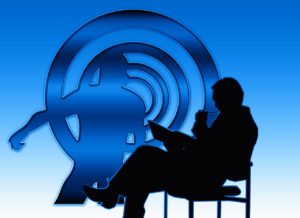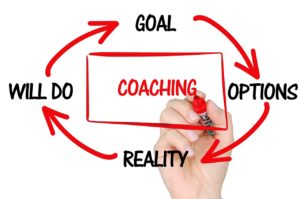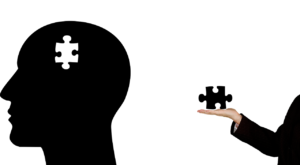 There are several different vocations in the addiction recovery field. If you or a loved one is struggling with addiction, you might be wondering who you should seek for help. It can get pretty confusing if you’re not sure how these various addiction workers differ from one another.
There are several different vocations in the addiction recovery field. If you or a loved one is struggling with addiction, you might be wondering who you should seek for help. It can get pretty confusing if you’re not sure how these various addiction workers differ from one another.
A counselor and a therapist are different, but what exactly makes them different? How different are the methods of a holistic therapist? What makes an addiction coach so much different than a life coach?
This article will explain the differences between all of the most common vocations in the addiction recovery field. Afterwards, you should be able to make a good decision about how best to progress towards your recovery.
Therapists
 Therapists are usually involved in more serious drug addictions. They are usually employed by rehabilitation facilities, and in this instance, usually use cognitive behavioral therapy to help an addict identify the causes of their addiction and eliminate it.
Therapists are usually involved in more serious drug addictions. They are usually employed by rehabilitation facilities, and in this instance, usually use cognitive behavioral therapy to help an addict identify the causes of their addiction and eliminate it.
Many therapists work on their own, however, and may explore different avenues to help you recover from your addiction. There are several different types of therapists that may help you, but the majority of recovering addicts simply see an addiction therapist.
LCSW (Licensed clinical social workers) are a type of therapist that work under the local or federal social services and are certified to give clinical advice and make recommendations.
MFW (Marriage and family therapists) may help a family come to terms with the addiction of a family member, but will typically refer the addict to a different, more specialized therapist for his or her treatment.
Counselors
Drug counselors are also often employed by rehab facilities as well as having their own offices, but their function differs from therapists. They may recommend therapy, but they aren’t often legally qualified to offer the therapy themselves.
Instead, a drug counselor will offer advice and information about your addiction. Speaking with a counselor may feel more comfortable for you because the session won’t be as clinical as speaking with a therapist will. Many drug counselors have past experience with drug use, and they usually believe that communicating honestly and comfortably with you is among their primary priorities.
Life coach
 Life coaches are like counselors that give you advice and direction on how to live your life to the fullest. A good life coach will work with you to identify solutions that best suit you; a poor life coach will try to force solutions on you that worked for them.
Life coaches are like counselors that give you advice and direction on how to live your life to the fullest. A good life coach will work with you to identify solutions that best suit you; a poor life coach will try to force solutions on you that worked for them.
A life coach specializing in addiction, or a recovery coach, will, likewise, help you identify how you could improve certain areas of your life that might make you less likely to develop or pursue an addiction.
They will help you redirect your focus onto more important areas like family, friends, your hobbies and passions, educational pursuits, or whatever you’re interested in enough to take focus away from your addiction.
Life coaches, particularly holistic life coaches, that specialize in addiction are great because they can identify and help you work through all areas of your life that can influence or impact an addiction.
Addictionologist
Addictionologists are specialists that deal with both chemical and behavioral addictions. They have undergone extensive training that qualifies them to provide you with both psychological analysis and guidance, as well as clinical or medical information that can help you fight your addiction.
Speaking to an addictionologist is usually very enlightening. They can provide you with a lot of the information and assistance that most of the other addiction workers cannot provide. They readily partner with you to help you reach your own goals of health and healing, and generally have multiple modalities or resources available to them to aid in this endeavor.
Holistic Specialty
 Any one of the above vocations could also be a holistic vocation (i.e. holistic therapist, holistic life coach). A holistic recovery specialist uses methods that deviate from the clinical ‘norm’ and are often responsible for many of the developments in the medical field because they are willing to work with practices supported by anecdotal evidence before the clinical, research-based evidence emerges.
Any one of the above vocations could also be a holistic vocation (i.e. holistic therapist, holistic life coach). A holistic recovery specialist uses methods that deviate from the clinical ‘norm’ and are often responsible for many of the developments in the medical field because they are willing to work with practices supported by anecdotal evidence before the clinical, research-based evidence emerges.
Holistic recovery workers aim to heal the body, mind, and spirit of someone struggling through addiction. To do this, they must address more than simply the root cause of addiction. They look at the individual as a whole and observe relationships between their psyche, their mind and their body and attempt to identify and perform a solution that addresses every, or as many, aspects of the individual’s health as possible.
If you’re interested in exploring new, holistic methods of treatment, then you should seek a holistic addiction worker. Every basic vocation for addiction treatment can be done in a holistic manner, but you might have to look a bit further to find someone dedicated to holism. The search will almost undoubtedly be worthwhile, though!
My specialties
My own journey in the field of addiction recovery has evolved during the past 35 years as a health and wellness professional. I have always attempted to look at each of my clients as a whole person, leading them toward healing in body AND mind, rather than just treating a set of physical symptoms or ailments.
And because of my own history of struggles with addiction, I became very motivated to pursue deeper learning in the field of addiction recovery, both to heal myself and also to take this message of healing out into the world.
As a former health and wellness professional, then, it was a natural fit to become a Certified Addictionologist, because this allowed me to utilize the background I already had to broaden my scope into the realm of addiction recovery.
As I continued practicing, I realized that much of what I had been doing over the past three decades was actually coaching people (albeit in the field of health and performance). Since I already believe that finding true healing involves looking at the person as an integrated whole, the partnership approach involved in coaching was also a natural fit into my practice. Thus, I pursued further training and certification through the American Academy of Sex Addiction Therapists, and received certifications as a Recovery Coach, Sex Addiction Recovery Coach, and Intimacy Anorexia Recovery Coach.
In all of these pursuits, I found my true passion. Thus, I have dedicated myself wholeheartedly to helping people who are struggling with addictions to find hope and healing.
It is my honor to serve you in this way. Please call my office at (805) 256-0372 and let’s get started on your journey to recovery.
